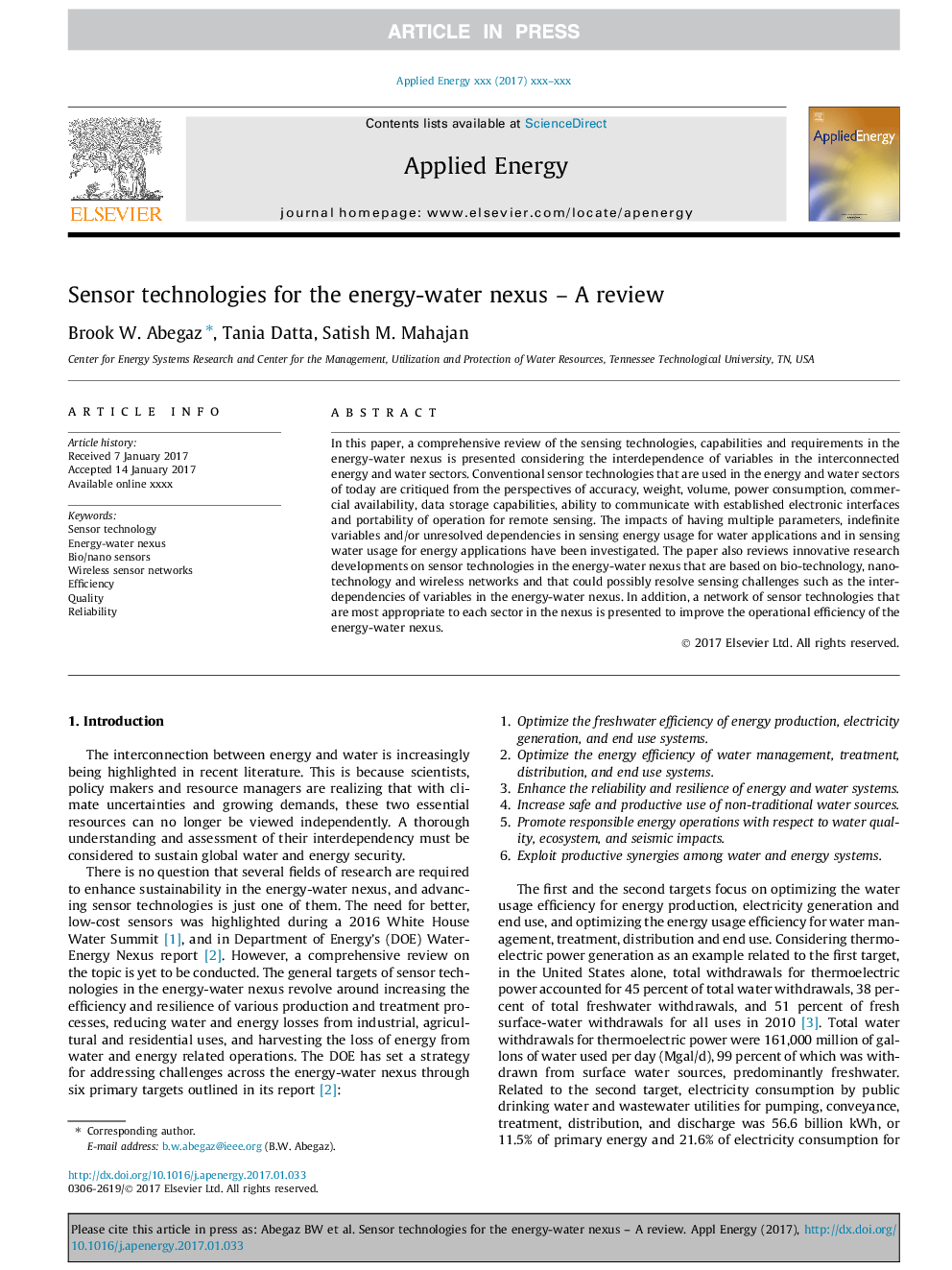| Article ID | Journal | Published Year | Pages | File Type |
|---|---|---|---|---|
| 6681256 | Applied Energy | 2018 | 16 Pages |
Abstract
In this paper, a comprehensive review of the sensing technologies, capabilities and requirements in the energy-water nexus is presented considering the interdependence of variables in the interconnected energy and water sectors. Conventional sensor technologies that are used in the energy and water sectors of today are critiqued from the perspectives of accuracy, weight, volume, power consumption, commercial availability, data storage capabilities, ability to communicate with established electronic interfaces and portability of operation for remote sensing. The impacts of having multiple parameters, indefinite variables and/or unresolved dependencies in sensing energy usage for water applications and in sensing water usage for energy applications have been investigated. The paper also reviews innovative research developments on sensor technologies in the energy-water nexus that are based on bio-technology, nano-technology and wireless networks and that could possibly resolve sensing challenges such as the interdependencies of variables in the energy-water nexus. In addition, a network of sensor technologies that are most appropriate to each sector in the nexus is presented to improve the operational efficiency of the energy-water nexus.
Related Topics
Physical Sciences and Engineering
Energy
Energy Engineering and Power Technology
Authors
Brook W. Abegaz, Tania Datta, Satish M. Mahajan,
